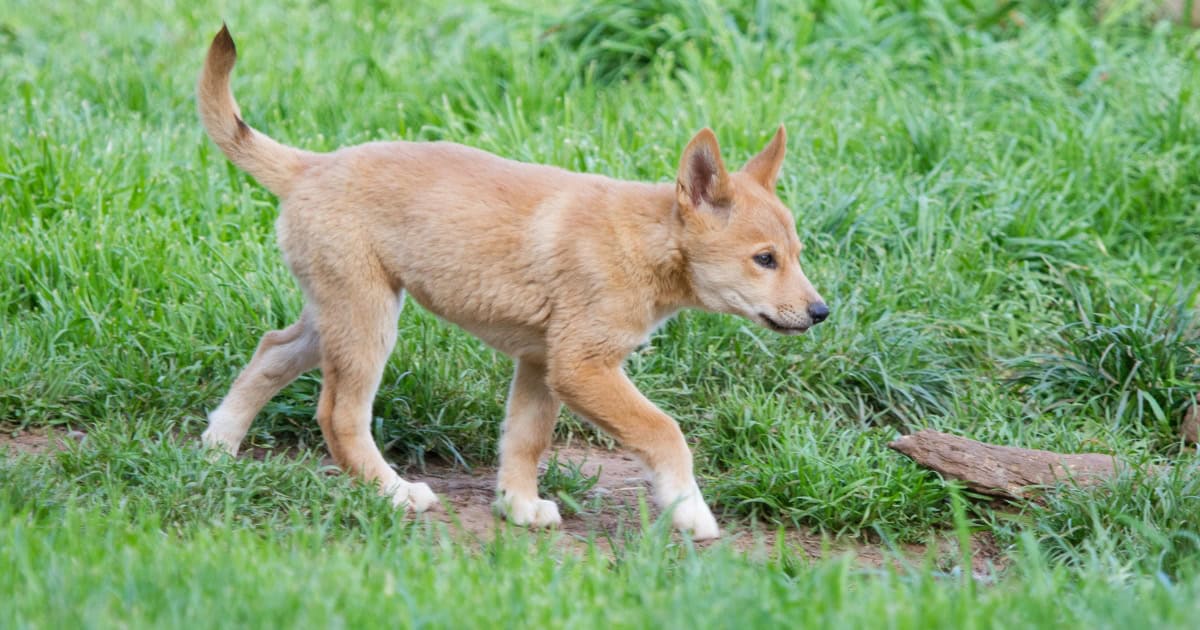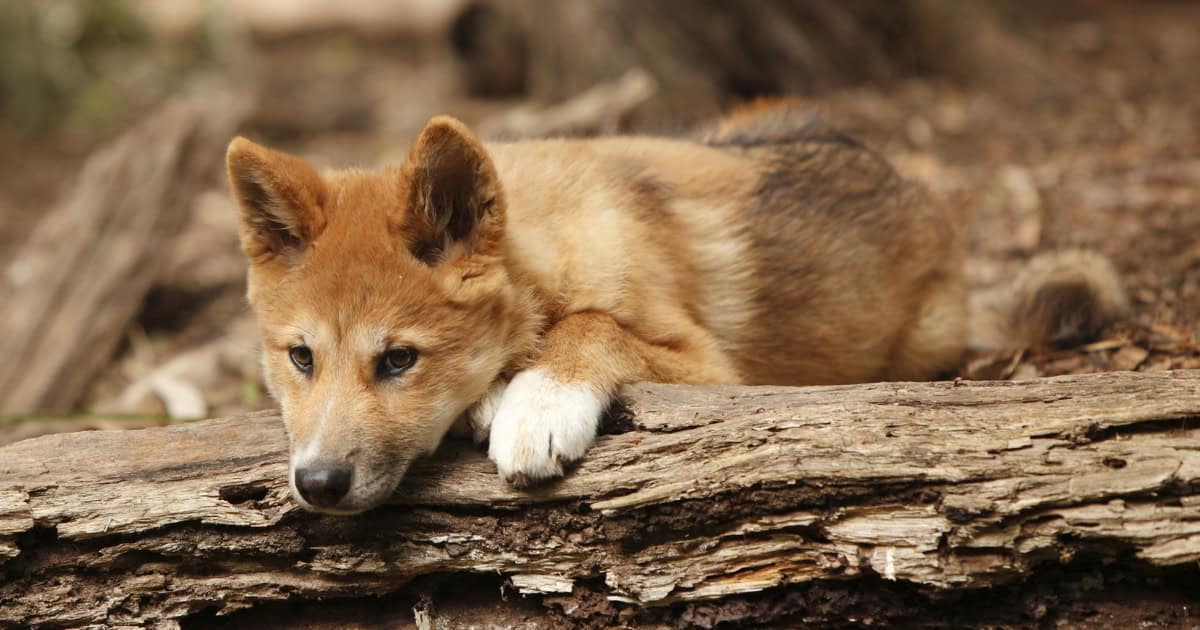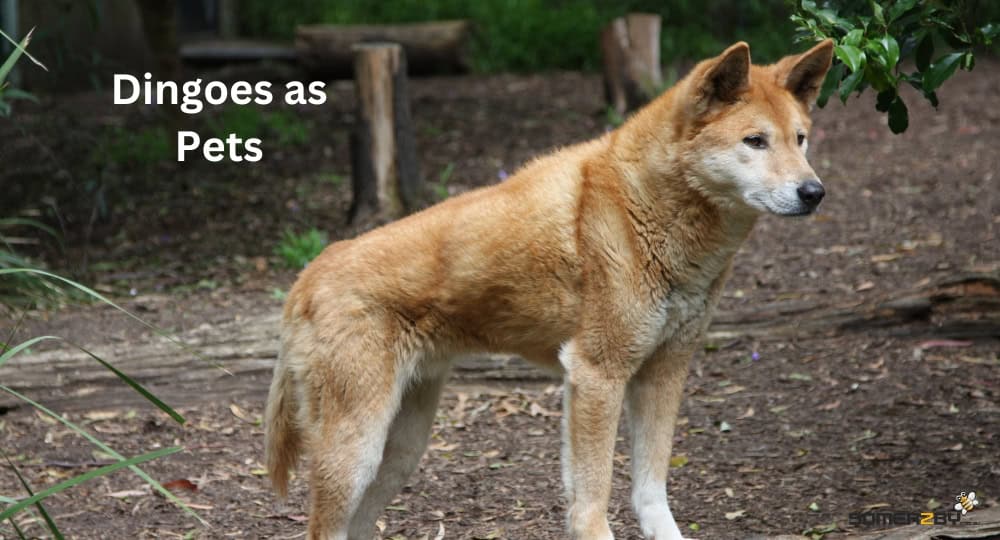Dogs
Dingoes as Pets
Dingoes as Pets
Dingoes can make loving and loyal companions if cared for in the right way. However, it is common for people to underestimate what it takes to properly care for a pet dingo.
It is more time consuming, expensive and harder than caring for a dog. Because of this, many owners end up surrendering their dingoes. They can be difficult to re-home and are then put down.
Dingoes are naturally quite shy. They will form a strong bond with their master and be reluctant to spend time with strangers. This makes them seem unfriendly and can be difficult in social situations.
They do not like to be alone for too long so require regular interaction, attention and stimulation. Without this, they can become stressed and behave badly. Because they are prone to boredom and their high prey drive, dingoes are likely to escape and cause damage.
They don’t adapt to new environments well. If you move house regularly, a dingo is not for you. They also cannot be placed in boarding kennels so it can be an issue if you go away on holidays regularly.
Dingoes cannot live with pet cats, birds, small animals (rabbits, guinea pigs etc.) or livestock.
Many dingo rescues will allow you to come in and spend time with their dingoes before deciding to adopt, to make sure they are the right choice for you.
Can You Keep a Dingo as a Pet?
Always check with your local government regarding rules for keeping pet dingoes in your area. Pet dingoes, like dogs, must be registered and microchipped.
It is illegal in Australia to remove a dingo from the wild and attempt to keep it as a pet.
Australian States where people can keep pet dingoes without any permit.
- New South Wales
- Western Australia
Australian States where permit is required.
- Victoria
- Northern Territory
Australian States where it is illegal to keep a pet dingo.
- Queensland
- Tasmania
- South Australia
Caring For a Dingo
Similar to pet dogs, pet dingoes need to be vaccinated against parvovirus, hepatitis and distemper. They also need to be regularly treated for fleas, heartworm, roundworm and tapeworm.
Dingoes have short, soft coats. They shed their undercoat in the warmer months. You will need to regularly brush you pet dingo to remove loose hair.

Dingo Facts
Dingoes are a native and iconic Australian dog breed. Dingo and domestic dog crossbreeds are commonly found. The popular Australian Cattle Dog is part dingo
Wild dingoes are culturally valued by Australian indigenous people.
Dingoes are also important in controlling populations of wild kangaroos, foxes, feral cats, rabbits and pigs.
Dingoes live for 15-20 years.
They are the size of a medium dog and can grow to over 20kg.
They have a similar appearance to domestic dogs, with some main differences – they are more muscular, have a thicker neck, a longer snout and a bushy tail.
Their coat can be light ginger, brown, creamy white or black.
What Do Dingoes Eat?
Dingoes are carnivores, meaning they eat a meat-based diet.
Wild dingoes eat native animals they hunt such as possums, kangaroos and wombats.
Domestic dingoes can be fed high quality commercial dog food. They can also be fed raw, meaty bones.
Dingo Habitat
Pet dingoes require special enclosures to keep them safe. A yard check is usually required before adoptions are approved.
Your dingo must have an area of 30m2. The larger the area, the happier your dingo will be.
It is recommended you have a fence that is 2.2m high OR 1.8m high but with a full roof or 45 degree inward facing 60cm over-hang.
Your dingo will also require a weatherproof sleeping area. Somerzby dog kennels will help keep your dingo protected and comfortable. The Somerzby Haven is study, rot resistant and easy to clean.

Dingo Behaviour
Dingoes are generally quiet animals. They will sometimes howl, particularly if they are bored or lonely. They do not naturally bark. However, some dingoes living with domestic dogs have learnt to make a similar sound.
Dingoes are very active and require high levels of exercise and stimulation. Dingoes with excess energy are likely to develop behavioural problems in captivity.
You should walk your dingo for up to 10km per day, to simulate what it would do in the wild. Dingoes must always be walked on a leash, with a hardness, even in ‘off leash’ dog areas.
Provide your dingo with activities including hiding food in its enclosure, using Kongs and puzzle toys, and giving it large beef bones to chew on for hours.
Can Dingoes Be Tamed?
Training a dingo is similar to training a dog but more difficult. Training will need to be regularly reinforced.
Whilst dingoes are smart and learn quickly, they also quickly forget learnt behaviour and get distracted. The earlier you begin training, the easier it will be. Consistency and patience are essential.
Praise your dingo when it does the right thing and say “no” firmly when it doesn’t. Never hit or scream at it.
It is vital to show the dingo you are dominant and the leader of the pack. Always be in control of the situation. When you walk your dingo, insure you walk ahead and it walks behind or beside you. Eat before it eats. You decide when playtime begins and ends.
Where Can I Buy a Dingo?
You can buy a dingo for $300-450 under an adoption program from Organisations such as Sydney Dingo Rescue and Dingo Den Animal Rescue, these centres offer rescue and adoptions for displaced dingoes.
This typically includes desexing, vaccinations, microchipping and training advice from professionals.
If you live in a state that requires a dingo licence, this can cost around $150. Check with your local authorities regarding costs involved with ownership. s





Thank you for this article. It helped me believe more that I own a dingo. We got her from an spa about 12 years ago when she was about 4-6 months ago. We’re pretty much inseparable.
Hi,
Desperately seeking good home for 18 month old pure dingo.
He needs a real dingo home out of suburbia. He is delightful, well behaved if he has constant companionship. Walks well on harness, is well socialised with other dogs. He has a beautiful @ d gentle nature until he is bored which can happen very quickly.
He needs someone who genuinely understands pure dingos. He sleeps like an angle on the end of my bed each night, yet at 5:30 am each morning he believes it is time for a walk.
He is simply too smart and too much for me and my current circumstances which are not right for him.
I will not send him to a virtual puppy farm. He deserves to. E allowed to be a dingo, preferably with other dingos. Any ideas?
Hi Sheryn,
There are several dingo rescues and sanctuaries in Australia that may be able to take him for you. Some of them re-home the dingoes while others look after them in a sanctuary for the rest of their lives.
Hi Linda. I’m hoping to talk to dingo owners to hear about their experiences. Can I give you a call or exchange a few emails? If so you can reach me: jshinchliffe@gmail.com
I have a Beautiful dingo boy he is a rescue from an aboriginal camp. I got him at about 6months old he is the most loving friendliest dog I have had to be my companion. Always by my side loves new people loves any animal. In the 7 years I’ve had the pleasure of his company he has never ever shown aggression to any person or animal. He always sleeps on my bed and I love him so much he is not a smooch but very caring. I am 73 if I’m not feeling well and lay on my bed he stays with me until I get up. During covid period I was affected and unable to to get up I live on my own and he stayed by me on the bed 5 days and nights. He was the one who saved me when my wife passed 7 yrs ago and he was the reason I made it through the covid period. I can’t imagine life without him. He cared for me when no other human bothered.
I have a dingo and my.husband just recently got him certified as his emotional support dog. They are inseperable. My husband had to go out of town for 2 months and lucky is his name sat in my husbands chair and just watched the gate waiting fir him to come home and normally he would have just cuddled up to me. If somethi g happened to my husband i think lucky would grieve to death and if something happened to lucky my husband would grieve to death. My husband used to r aise wolves and we didn’t even know he was a dingo until he wasof agewas about 3 My husband sleeps with him and wven goes to the restroom with him. If he hears the truck start and he’s not in it , he starts panicking by barking loudly over and over and clawing at the window until his daddy puts him in the truck. He had to go outside to get mail and went berzerk because he can’t be without his daddy. In his vision or hearing range or he goes nuts. Very very loyal and loving pets. We have a cat a bird and another dog that is?a black lab. The only problem that we ever have out of him was when are two other male dogs were there and lucky would start a fight over territory weather has a puppy he likes to play The Catch Me If You Can game and lucky ran circles around five adult one night but he’s been the most terrific dog in my husband says he’s the absolute best dog he had in his entire life and he is 63 years old
Hi Bobbijo. I’m hoping to talk to dingo owners to hear about their experiences. Can I give you a call or exchange a few emails? If so you can reach me: jshinchliffe@gmail.com
After reading all this, I’d rather just stick to a regular dog! Dingoes are still cool though, lol!
same, sick of seeing them failed by owners then robbed of a fantastic life. Also sick of so called rescues taking youngster that have been poached out of dens and the parents left frantic. If people use the excuse, they are saving them from 1080, ask how come they happily left the parents? The little ones are then flogged off through “rescue”
We have a beautiful young female dingo…that we got off someone when our 2 longterm family pet dogs passed away….we got her whenshe was about 3months old we think she is nowabout 8months old…She is very attached to our wolfhound cross …and my partner …She is very responsive to commands and calling her name and lets us pat her …Unfortunately one of our goats got stuck in the fence one day and our ding o attacked it and killed her …..We need to relocate her and wanted to know if this is a possible thing to do
……Can we re wild her in the bush after she has been living with us and depending on us for her meals ….She isnt chained up ..she roams free and we fence her in some of the time to separate her from our goat areas …to prevent any problems …We have become very attached to her and she to us also ….just want to do the right thing for her …any advice please
I am simply trying to donate funds to help dingoes in need of love, food and care. Can anyone help?
I have a beautiful 1 plus year old I adopted from a rescue. I continue to feed her the same dry kibble the foster mom gave her. Wholesome brand Salmon for sensitive tummies. My dog has had 4 episodes of intestinal issues since bringing her home. We also give her 1 mini Greenies treat at night. Has anyone else had this issue with their dingo?
Thank you
We have a dingo we got from dingo den and they recommend that we feed them a raw meat diet only as dingoes eat lean meat
Hi we got a dingo from a rescue organisation dingo den. Lean meat only was what recommend
Lean raw meat
Dingo ownership means COMMITTMENT!!!! Too many people discard of them too easily 🙁 When I bought my house, my house choice had to be dingo friendly. You have to be prepared to problem solve with a dingo , not just get rid if them so easily. Dingoes are for life !!!
Well said!
We have a 9 month old dingo male cries if can not see me. But goes back and forth to front door when Marg goes out.we are over 70 years wouldn’t be without our mate
I had a dingo as well as an Australian Shepherd, and an English Mastiff…2 cats and a snake…my dingo was extremely protective over our whole family..but never bit anyone..the best animal I have ever raised…he lived till 19 yrs old
From 8-10 weeks, I had an American Dingo or Carolina dog named Jersey Girl. She grew to 81 lbs and lived to 16 years old. She was truly a show stopper. Absolutely gorgeous !
She would sit up in the back seat of my convertible stopping car at lights on Pacific Coast Highway in Malibu. She was a loving pet who kids would come up to pet and love at local stores in Calabasas, CA. I took great pride in taking her out to parks. Our local sheriffs were amazed by her gentle manner. I miss her since she had to be put down from illness. I would love to have another puppy. She was so loyal and loving. I will miss my Jersey Girl until the day that I die ❤️
I have a dingo without realizing I have a Dingo. I bought her at a Rescue who told me she was a mutt. People started telling me I had a Dingo and I started looking at pics and info and I’m pretty sure she is a Dingo. We don’t want to have a Dingo and would love for her to have a family that would love her. We are an older couple and now that we think we know what she is we realize she is too much dog for us. She is 11 mos old. Would you want to have her since you lost yours? We also are in SouthernCalifornia
am interested in adopting your dingo. I already have one and she is wonderful
Is there a process to adopt and then import to the USA?
Hi Christopher,
Sorry, I don’t know as we are located in Australia.
dingo is a native animal, they cannot be taken outside of Australia
I’ve decided my Australian red Heeler is mostly dingo … after reading the comments. Totally dedicated to me and does not want to be left behind. Gets very upset when admonished and would run 30 km on the farm everyday.!
I didn’t really see anything on the laws in USA, can you offer anything that may have information on Dingo/domesticated dog breeds in USA?
Hi Loyanne,
Sorry, I am not familiar with the laws in the USA as we are located in Australia.
I am looking to bring a Dingo or two back to the USA. I somehow came across a Dingo as an adoptable rescue in Western USA and he’s been my best friend for the past 11 years. I’d like to get another and have my Dingo help train my new additions to the family before he gets too old.
What is the best way to get them and bring to the USA?
Hi Julio,
Sorry, I don’t know if you can export them. All the best!